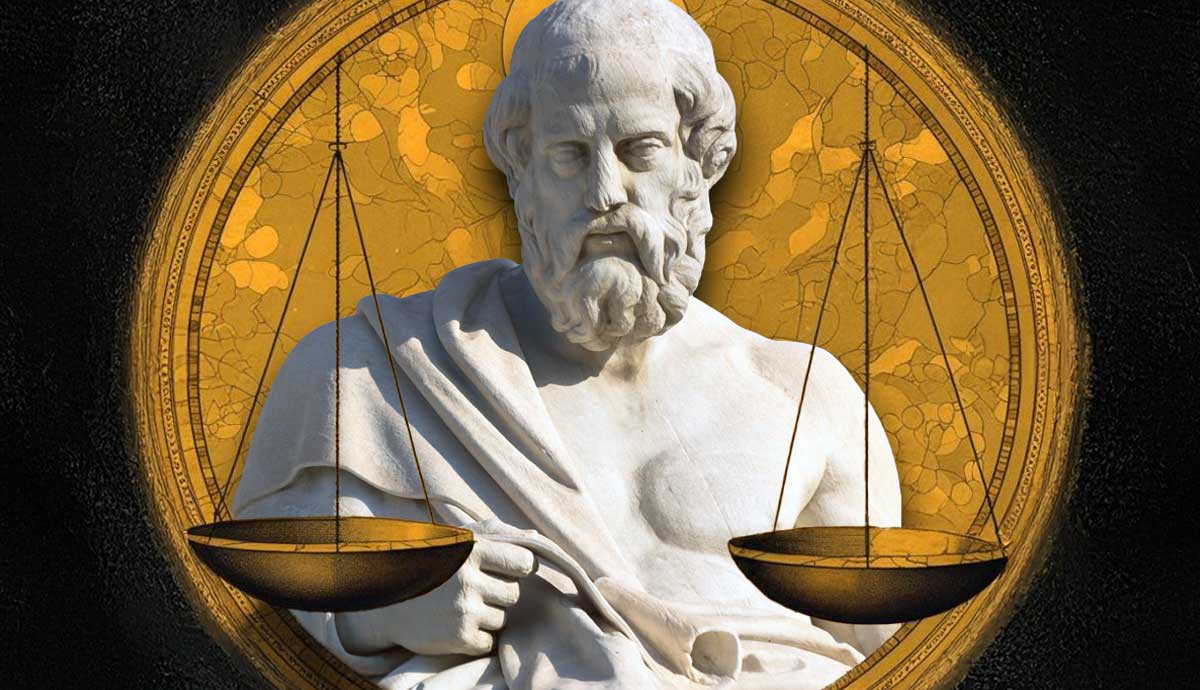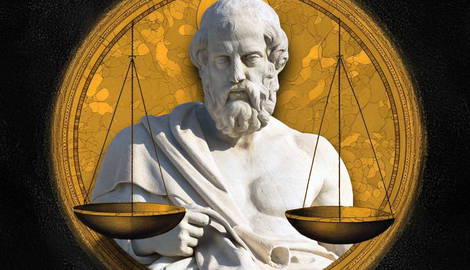
By definition, the word “mean” can have a few meanings. The first and most obvious would be how it was just used: to give purpose to something. It can be used to describe the quality — or lack thereof — of a place, the harsh disposition of a person, or to signify excellence. In mathematics, it is used to describe the middle point or average in a data set. This mathematical definition aligns with that of Aristotle, who used “mean” — or, more specifically, Golden Mean — to describe the middle ground of virtue.
The Golden Mean is Central to Aristotle’s Ethics

Few people in history have had as much of an impact on Western thought as Aristotle, and nowhere is that more prevalent than when it comes to his ethical theory. Aristotle’s work “Nicomachean Ethics” provides a sweeping overview of the thinker’s moral philosophy and introduces the concept of the Golden Mean. The concept itself is simple: the Golden Mean states that a virtuous life is achieved by avoiding extreme excesses or deficiencies of virtues; it emphasizes the importance of moderation in behavior and emotions and advocates for a balanced approach to life. A balanced life is easier said than done, and the Golden Mean is just one example of Aristotle’s philosophies that seem easy to follow but are actually hard to execute.
His Ethics Are Rooted in Eudaimonia and Virtue

Aristotle’s ethical framework is based on achieving eudaimonia — often translated to “happiness” but more often meaning “to flourish.” For Aristotle, eudaimonia is the highest good humans can reach; it is the ultimate aim of life. It is not a fleeting emotion but a permanent state that results from living virtuously.
According to Aristotle, virtuous living — which involves both intellectual virtues (developed through instruction) and moral virtues (developed through habit) — is not intrinsic; it is fostered through practice. The Golden Mean must be practiced too, and while it is particularly pertinent to moral virtues, it can be applied to intellectual as well.
The Golden Mean Relies on the Middle Ground

Aristotle defined the Golden Mean as the middle ground between the extremes of too much of a trait (an excess) and too little (a deficit). He argues that every virtue lies between these two ends. For example, the Golden Mean for the virtue of courage lies between recklessness (an excess of courage) and cowardice (a deficiency of courage). Similarly, the virtue of generosity is the middle ground between wastefulness and stinginess.
An important facet of the Golden Mean is that it is relative to the individual and situation. The mean in one situation for someone might not be the same for another, or vice versa. This relativity underscores the importance of using wisdom to discern the appropriate mean in varying contexts.
Individual Context Impacts Where the Golden Mean Lies

Applying the Golden Mean in daily life involves a careful approach to one’s actions, emotions, and situations. It requires self-awareness and a deep understanding of oneself and the context at hand. For example, a soldier draws on courage before charging into battle, just as a CEO might draw on courage before making a major business change. Both are using the same virtue but appear to be on opposite ends of the spectrum, as the soldier charges in quickly and could appear reckless, while the CEO takes months to weigh options and appears cowardly. In reality, though, both apply the Golden Mean; their situations are different, which causes the mean to be different as well.
Practical Wisdom is Key to Finding the Golden Mean

According to Aristotle, practical wisdom is the key to consistently applying the Golden Mean. It involves knowing the right thing to do and using this knowledge in various situations. Aristotle believed that developing practical wisdom requires experience and reflection. It grows with time and practice, enabling individuals to consistently make balanced and virtuous choices. Without practical wisdom, individuals could overshoot or undershoot the middle ground without knowing, or they might apply the same middle ground to all contexts, even though circumstances dictate different responses.
Aristotle’s Theory Promotes Virtuous Living, But It Has Its Challenges

The Golden Mean promotes a balanced, harmonious, and virtuous life by avoiding extremes. This balance has benefits that extend beyond individual behavior and into societal norms and ethical standards. Moreover, the Golden Mean fosters personal growth and self-improvement: By continually striving for moderation, people develop virtues that contribute to their well-being and that of those around them.
However, the Golden Mean has its challenges. Critics argue that the theory’s relativism makes it difficult to apply it consistently. Additionally, some situations may not have a clear mean, making it hard to determine the virtuous path. On the other hand, proponents of Aristotle argue that these challenges are part of the depth and complexity of Aristotle’s theory, making it a valuable guide for ethical living that should still be used today.










